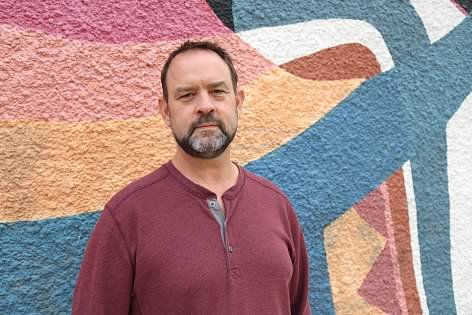NAIITS: An Indigenous Learning Community is pleased to welcome Michael (Mike) Hogeterp as lead facilitator for the NAIITS-led Canadian Learning Community for Decolonization and Innovation in Theological Education.
“Mike brings many years of engagement with governments and community action organizations. As a spokesperson and as an advocate, he brings a natural ability to engage different groups of people, different organizations, different mandates in such a way as to bring them together in partnerships to work together towards specific goals and outcomes,” said Terry LeBlanc, director emeritus of NAIITS.
Terry added, “He champions Indigenous ways of knowing, being and doing as necessary not only for Indigenous people, but also for non-Indigenous people to sort through some of the conundrums in which we find ourselves.”
Earlier this year, NAIITS received a grant of $5 million in U.S. dollars from Phase 3 of the Lilly Endowment’s Pathways for Tomorrow Initiative. The grant provides NAIITS with resources to lead a multi-school partnership exploring ways to deliver theological education that are decolonial, contextual and Indigenized.
Key members of the partnership — called the Canadian Learning Community for Decolonization and Innovation in Theological Education — include Tyndale Seminary in Toronto, Ambrose Seminary in Calgary and Acadia Divinity College in Wolfville, Nova Scotia.
As lead facilitator, Mike will coordinate with NAIITS faculty and staff to lead the Canadian Learning Community for Decolonization and Innovation in Theological Education. With the guidance of NAIITS Director Shari Russell and a working group of representatives from each partner institution, he will be responsible for planning, implementing, assessing and adapting the program and its mandates.
Mike comes to NAIITS after two decades as director of the Christian Reformed Centre for Public Dialogue in Ottawa and years of advocacy work for reconciliation and justice for the Indigenous peoples of Canada with groups like the Christian Reformed Church’s Doctrine of Discovery Task Force, the Ecumenical Indigenous Education Reform Campaign and the Faith in the Declaration Coalition.
In that work, he said, he’s noticed many non-Indigenous people have “warm hearted, good intentions" but “very little understanding of what to do and how to go about it,” which places the burden of reconciliation on Indigenous peoples.
“This is an opportunity in this sort of broader community of seminaries and their church networks to really work out those kinds of commitments to deep intercultural, relational accountability,” he said of his new role at NAIITS.
“I think that's a really profound opportunity for transformation.”
Mike, who describes himself as a second-generation settler of Dutch descent, is a familiar face to the NAIITS community.
He is a candidate in NAIITS’ Ph.D. program, where his thesis is tentatively titled “Being Careful Where We Walk: On Settler Responsibility for Right Relationships.” He also has published several papers in recent volumes of NAIITS’ academic journal, including “Kinship and the Two Row Covenant Chain Tradition: An Exploration of Responsibility and Hope” and, as part of the Evangelical Fellowship of Canada Indigenous-Settler Working Group, “Stewarding Sacred Seeds.”
In addition to his advocacy, Shari noted, Mike has helped congregations “grapple with what it means to walk in right relations” through Hearts Exchanged, a "learning and action journey” designed to equip Reformed Christians to better engage with Indigenous people. He’s done his own grappling, too, she said.
“I'm excited to work with him,” Shari said. “We have worked together before on various committees, and I think he walks the road well. He’s learning about right relations and beginning to understand his own history and context and what it means to walk gently.”
Mike will begin his new role at NAIITS on Sept. 25.
